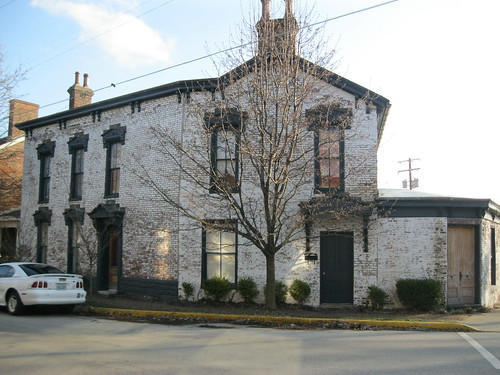 |
| The Billy Klair House, Lexington, Ky. |
We all recognize the name of Boss Tweed – the leader of the nineteenth century NYC political machine. A similar figure existed in Lexington in the early twentieth century: Billy Klair. His home, at the corner of Old Georgetown and West Short, is pictured above and is a landmark of the Historic Western Suburb.
Klair, in the words of Gov. Happy Chandler, “absolutely controlled Lexington.” He was known by all as “Billy” and he routinely apologized for “being sober,” helping to connect him to every voter. He served in the state Democratic Party organization and also served in the General Assembly.
In utilizing patronage, Klair ensured that a disproportionate number of Lexingtonians remained on the state payroll. His precinct organizational skills were impeccable — he even housed a “Sunday School” in his office with friends on the police force during which they got together and informed Klair about what was going on around town.
In business, Klair had his hand (and connections) in a number of businesses: saloons, hotels, book publishing and banks. His book publishing company produced nearly all of the state’s textbooks; critics said that if he were to publish a dictionary it could stop at “G” for “graft.” Despite lucrative textbooks contracts, Klair’s most successful venture was the insurance company of which he was a member: Klair & Scott Insurance.
Despite the fact that neither Tom Scott nor Billy Klair knew anything about the insurance business, it quickly became one of the state’s biggest insurers. From his office on the sixth floor of the Security Trust Building, Klair insured the assets of the Commonwealth, the University of Kentucky, and Keeneland. Charlie Wiley, who would later become Lexington’s mayor described Klair as a “shrewd politician” and quipped that he had “fire and theft insurance on every bridge in the state.” Think about that.
Most of the information in this post comes from Bossism and Reform in a Southern City: Lexington, Kentucky, 1880-1940 by James Duane Bolin.
by James Duane Bolin.
